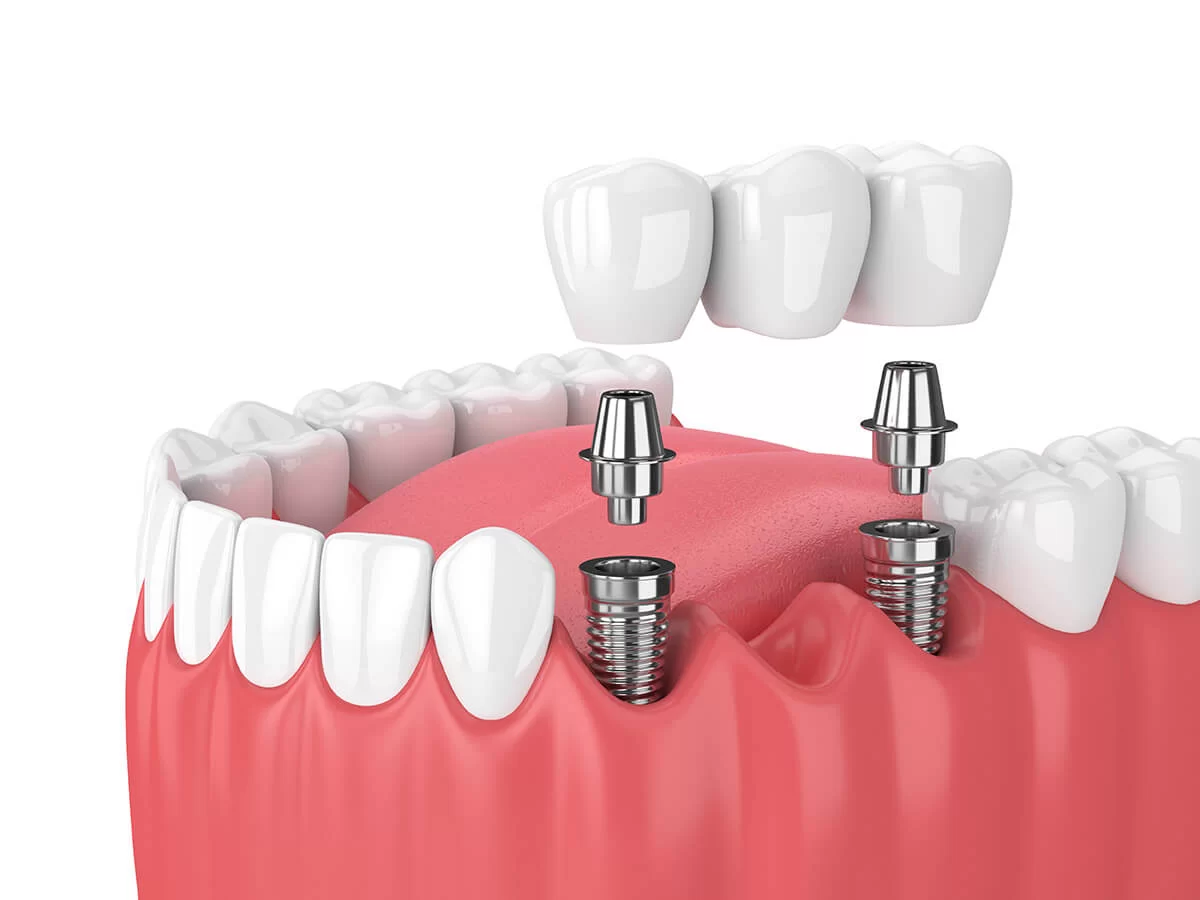
How Much Do Dental Bridges Cost? Understanding the Price and Options for Your Smile
- Factors Affecting Dental Bridge Cost
- Different Types of Dental Bridges and Their Prices
- How to Find Affordable Dental Bridges
- Dental Bridge Cost Comparison with Other Procedures
Factors Affecting Dental Bridge Cost
If you’re considering dental bridges to replace missing teeth, understanding the cost is an important first step. But how much do dental bridges actually cost? The price of dental bridges can vary significantly based on several key factors. These include the type of bridge, the materials used, the complexity of the procedure, and the geographic location of the dentist. Below, we’ll break down these factors to give you a clearer idea of what to expect.
1. Type of Dental Bridge
One of the most significant factors influencing the cost of dental bridges is the type you choose. There are several types, including traditional bridges, cantilever bridges, Maryland bridges, and implant-supported bridges. Each type comes with its own set of advantages and price points:
- Traditional Bridges: These are the most common type of dental bridge, typically used when there are natural teeth on both sides of the missing tooth. These bridges are generally more affordable but can still vary in price based on materials.
- Cantilever Bridges: This type is used when there is only one adjacent tooth. They are slightly less common but can be more expensive due to the specialized technique.
- Maryland Bridges: These are often used for front teeth and are less invasive than traditional bridges. They can be a more affordable option but are also less durable in the long run.
- Implant-Supported Bridges: The most expensive option, implant-supported bridges require dental implants, which involve additional surgery. However, they are also the most durable and long-lasting solution for missing teeth.
2. Materials Used in the Bridge
The materials used to make your dental bridge will also impact the price. Materials can range from affordable porcelain to more expensive options like gold or zirconia. Here’s a breakdown of common materials:
- Porcelain: Most commonly used for bridges, porcelain offers a natural appearance and is often the go-to choice for front teeth. It’s a mid-range option in terms of cost.
- Gold: Gold bridges are highly durable but are usually more expensive than porcelain. They are often used for back teeth due to their strength and ability to withstand wear and tear.
- Zirconia: Zirconia is one of the most durable materials and provides a more natural look than gold. It's often used for both front and back teeth and tends to be at the higher end of the price range.
3. Geographic Location
The cost of dental procedures, including bridges, can vary significantly depending on where you live. Dentists in urban areas or regions with a higher cost of living tend to charge more for dental work. It’s always a good idea to shop around for quotes and ask about the potential cost differences based on location.
Different Types of Dental Bridges and Their Prices
Understanding the different types of dental bridges can help you choose the best option for your needs while also giving you a clearer idea of the costs involved. Below is a general price range for each type of dental bridge:
1. Traditional Bridges
Traditional dental bridges are typically the most affordable option, with prices ranging from $1,000 to $1,500 per unit (a unit is one replacement tooth). These bridges are often made of porcelain or ceramic and are a great option for people who have healthy adjacent teeth to support the bridge.
2. Maryland Bridges
Maryland bridges tend to be more affordable, with costs ranging from $1,000 to $1,500 per unit. However, they may not be as durable as traditional bridges, particularly for back teeth, which can affect the long-term cost-effectiveness.
3. Cantilever Bridges
Cantilever bridges can be a bit more expensive due to the specialized technique used, with prices typically ranging from $1,500 to $2,500. These bridges are often used for front teeth and are a good option when there is only one adjacent tooth to support the bridge.
4. Implant-Supported Bridges
Implant-supported bridges are the most expensive option, with prices starting at around $2,000 per tooth and increasing depending on the complexity of the procedure and materials used. These bridges require dental implants, which involve additional procedures and costs.
How to Find Affordable Dental Bridges
While dental bridges can be a significant investment, there are ways to make them more affordable. Here are some strategies to consider when trying to find affordable dental bridges:
1. Insurance Coverage
Check with your dental insurance provider to see if dental bridges are covered under your plan. Many insurance plans offer partial coverage for bridges, which can significantly reduce your out-of-pocket costs. Make sure to review your benefits to understand your coverage options.
2. Dental Financing Options
Many dental offices offer financing plans to help spread out the cost of dental work. These plans often come with low or zero interest rates, allowing you to pay off your dental bridge in installments rather than all at once.
3. Discounts and Promotions
Some dental practices offer special promotions or discounts, especially for new patients or specific dental procedures. It’s worth asking your dentist if they have any current offers that could reduce the cost of your dental bridge.
Dental Bridge Cost Comparison with Other Procedures
When considering how much dental bridges cost, it’s helpful to compare this procedure to other options for replacing missing teeth, such as dentures and dental implants. While dentures are generally the least expensive option (starting at around $300 to $500), they are also less permanent and require more maintenance. Dental implants, while offering greater durability and functionality, can cost upwards of $3,000 to $4,000 per implant, making them a more expensive solution than dental bridges.
While dental bridges are more affordable than implants, they still provide a long-term solution for missing teeth, allowing you to restore both the appearance and function of your smile.
If you're considering dental bridges, it’s important to consult with a trusted dental professional who can assess your individual needs and provide an accurate quote. For more information or to schedule a consultation, visit Dentistry Toothtruth to learn more about affordable dental bridge options and pricing.







 The Smile Institute Advanced Dentistry & Orthodontics4.0 (256 review)
The Smile Institute Advanced Dentistry & Orthodontics4.0 (256 review) Dr. David Scharf - Long Island Periodontist & Dental Implants4.0 (234 review)
Dr. David Scharf - Long Island Periodontist & Dental Implants4.0 (234 review) Pope Family Dentistry5.0 (7 review)
Pope Family Dentistry5.0 (7 review) Braces Braces4.0 (202 review)
Braces Braces4.0 (202 review) Dental Playground3.0 (35 review)
Dental Playground3.0 (35 review) Dr. Braden H. Stoltenberg, DDS4.0 (11 review)
Dr. Braden H. Stoltenberg, DDS4.0 (11 review) The Importance of Oral Health Education During Pregnancy for a Healthy Pregnancy
The Importance of Oral Health Education During Pregnancy for a Healthy Pregnancy Best Tips for Brushing Your Teeth Properly for Healthy Gums: Essential Techniques for Oral Health
Best Tips for Brushing Your Teeth Properly for Healthy Gums: Essential Techniques for Oral Health Why Skipping Dental Checkups Can Lead to Bigger Oral Health Problems
Why Skipping Dental Checkups Can Lead to Bigger Oral Health Problems Advantages of Porcelain Dental Restorations
Advantages of Porcelain Dental Restorations How Can Diabetes Cause Tooth and Gum Problems? Preventing and Managing Oral Health Issues
How Can Diabetes Cause Tooth and Gum Problems? Preventing and Managing Oral Health Issues Healthy Habits for Promoting Good Oral Health and Hygiene: Tips for a Healthy Smile
Healthy Habits for Promoting Good Oral Health and Hygiene: Tips for a Healthy Smile